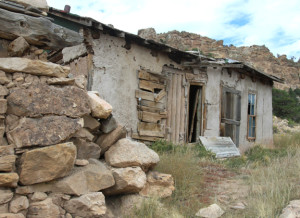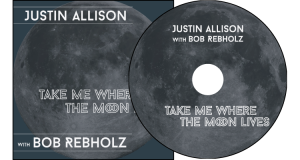by Martha Quillen
I used to hate the idea of mixing politics and religion. I assumed politics were about public issues: schools, roads, disaster relief, regulatory agencies, courts, prisons, trade agreements…. And religion was about personal matters: What do I believe? What’s right? Wrong? Good? Or evil? Why am I here? What is my purpose? Whom should I trust? Associate with? Marry?
And I just naturally assumed that most Americans didn’t want governments to make personal decisions for them. And that’s probably true. But as it turns out, a lot of citizens want their governments to control their neighbors’ personal decisions.
Private decisions often inspire political action and court cases, whether the subject is other people’s sexual orientation; or choice in clothing; or prayers and religious displays; or viewpoints on life, death and birth control. But such disputes seldom get resolved – and probably can’t be resolved by law – because they are not about premeditated offenses. They are about the tensions that arise when people of all stripes, colors and traditions try to live together. Sometimes other people’s customs just seem too bizarre to bear, and citizens react:
“Really?” the former suburban soccer mom laments about her new neighbors. “Do they really need to carry around a whole arsenal in their pickups, and wear cammo, and raise kids who talk about nothing but guns?”
“Have you ever been to San Francisco?” the seventy-year-old ranch wife asks after her first vacation in twenty years. “They have parades there where gay people dress in awful getups. The women wear crazy suits, and the men wear glittery bras with feathers and skirts, except for the people who hardly wear anything at all, and they dance and prance around and wave at the kids. Kids mind you. Why the whole place looks to still be in high school, with hardly any real adults around to make them behave.”
American culture is so quirky and entertaining in novels and movies, but it’s not always so amusing in real life, which brings to mind Kim Davis, the Kentucky clerk who refused to issue marriage certificates for same-sex couples. Her stance was obviously meant to stir up trouble, and it did. There was Davis on the television news, so stalwart and righteous, like a latter-day Joan of Arc, and there was the disappointed couple, stunned and angry. And then they showed footage of other gay couples beaming as they exchanged vows – something they could do because they lived elsewhere.
Such confrontations are thoroughly theatrical and make for excellent news features. But the real-life dramas they portray are cringeworthy and sad. My initial reaction to Davis’s stance was anger. She was a government official, I thought, not a private citizen acting on her own behalf.
And just who is Davis serving? America is home to countless religions, sects, churches, mosques and temples, and also atheists and secularists, and according to the Bill of Rights, Americans are free to follow their own beliefs without interference by government authorities.
But just how are we supposed to do that if people keep trying to force us to abide by their beliefs?
So I was disappointed when I first heard that Pope Francis had met with Davis. Francis has been a vocal advocate for more compassionate, less judgmental religion, and I hadn’t expected him to stumble into that particular quagmire. But according to the Vatican, the meeting with Davis wasn’t arranged by Francis and wasn’t intended to be a message about his position.
Mrs. Davis definitely interpreted it that way, however. And her zeal for ruining that couple’s joyous event riled me. But I also wondered whether I would have felt so strongly about Davis’s misuse of her official office if her stance had been something I agreed with. Would I have been mad if Davis had been a clerk refusing to transfer execution orders for a mentally challenged fifteen-year-old?
I doubt it. In truth, I was angry because I agreed with the Supreme Court decision. So, no, I didn’t like Davis’s position, but her actions were nonviolent, and probably inevitable. Revolutionary change is usually contested and protested.
And that brought me to another realization: I never approved of mixing politics and religion, but I do it myself on a regular basis. I have great faith in tolerance, forgiveness, inclusion and the Golden Rule, and I think the court’s approval of gay marriage is a world-altering victory for human rights.
[InContentAdTwo]
In recent years, divisiveness, power plays and partisan fury have become a major force in our public dealings and have split people into feuding camps and inspired constant conflict, especially in Salida. And I’m not the only one who’s noticed.
“What’s happening to our little town?” a coworker commented upon reading the letters in the local newspaper.
“I just don’t feel good about either side,” a friend recently commented.
“I hate those city meetings,” a woman commented. “Have you been to them? Our council and city administrators are so mean to people.” But within the hour someone else told me all about how abused and wronged our city administrators and the council members who always back them are.
This continuous contention is disturbing and exhausting. And it may be due to our religions. Or more precisely, it may be due to our differing beliefs, principles and values. I, for example, am tired of this clamor for more trails, bike paths, pools, tourist money, tax revenues and profits. To me it seems cruel and insensitive given how many people can’t afford Salida’s rising rents.
But I’m just as horrified when residents talk about slashing funds for public employees, reducing maintenance for our swimming pool, or defunding Salida’s art centers. Salida is a tourist town and it needs attractions in order to maintain a viable economy and local businesses.
Mostly, however, I hate what’s happening in Salida because it seems to be all about money, profits, business, financing and materialism, and not about residents (or our environment, wildlife and sense of community).
People keep saying Salida looks so much better, which irritates me. Of course Salida looks better. We’ve put hundreds of thousands of public dollars into new art facilities, trails, sidewalks and river features. But the real question is not whether Salida looks better, it’s whether Salida is better.
And the answer to that depends on what you value. Nature? Money? Job opportunities? Safety? Parks? Affordable living? Festivals? Mountain biking? A slower pace of life? A sense of belonging? River sports? Restaurants? Concerts? Shopping centers?
Maybe it’s time I rethink this idea about not mixing religion and politics – because in our era, nothing is private. In recent years, political players have complained about our personal behavior almost as often as preachers do, but religions at least try to set standards for how parishioners should treat one another. Whereas all is apparently fair in modern politics.
This article was inspired by two entries, The Opium of the Masses and Final Thoughts, in Notes on the Death of Culture, Essays on Spectacle and Society, by Mario Vargas Llosa, a nonbeliever and winner of the Nobel Prize for Literature, who believes religion is essential to culture and supplies “concepts such as spirit, ideals … beauty, soul, [and] transcendence” to those who might never know them otherwise in our increasingly technological society. Without religion, Llosa says, “This life, organized relentlessly by pragmatic considerations, would thus develop under the absolute control of specialists dedicated to the satisfaction of material needs and inspired by the pursuit of profit, the motor of the economy, the supreme value of society, the exclusive measure of success and failure and the raison d’etre of individual lives.”
Martha Quillen contemplates the profound and the mundane while walking in the wilds of Chaffee County.




